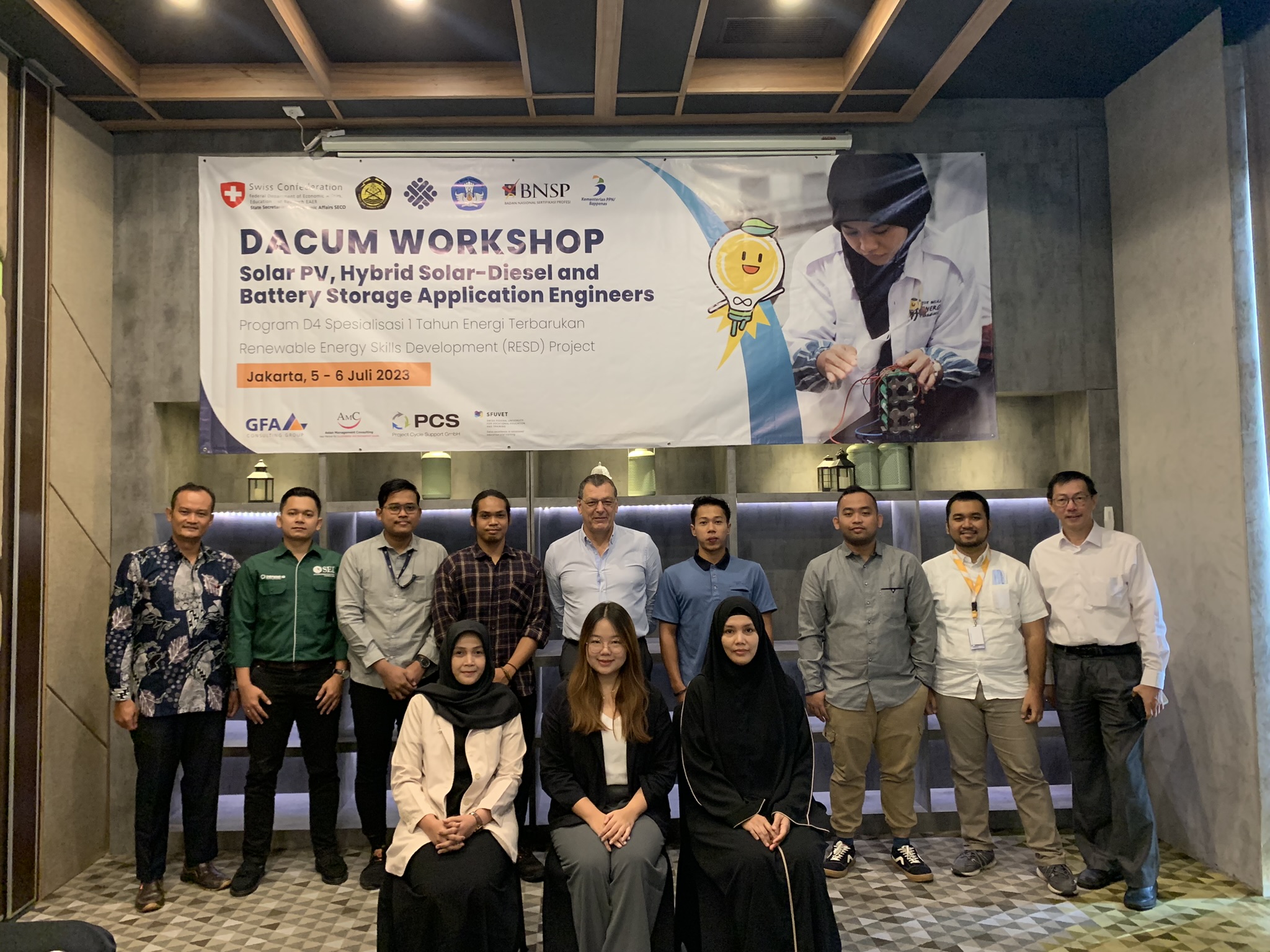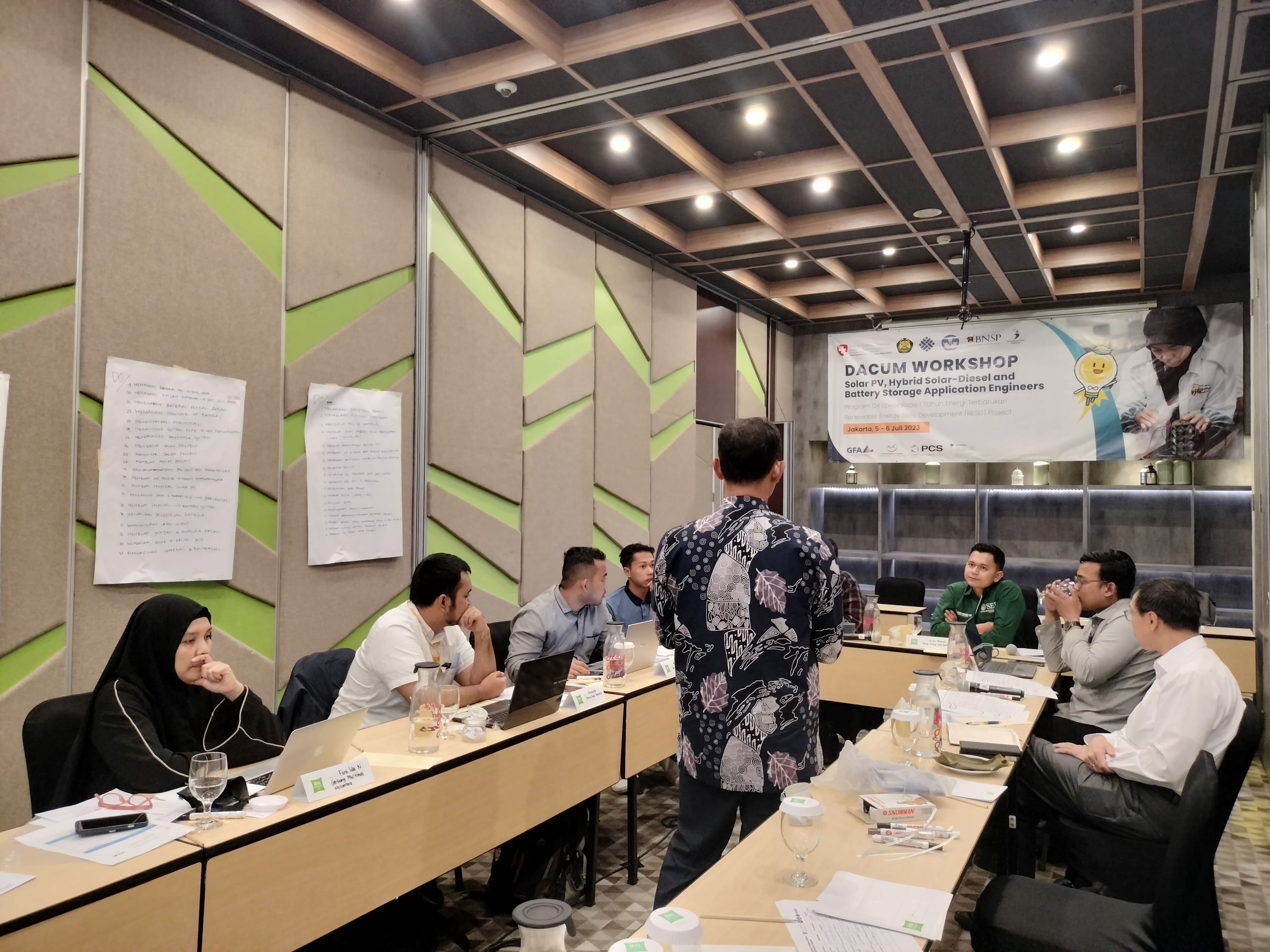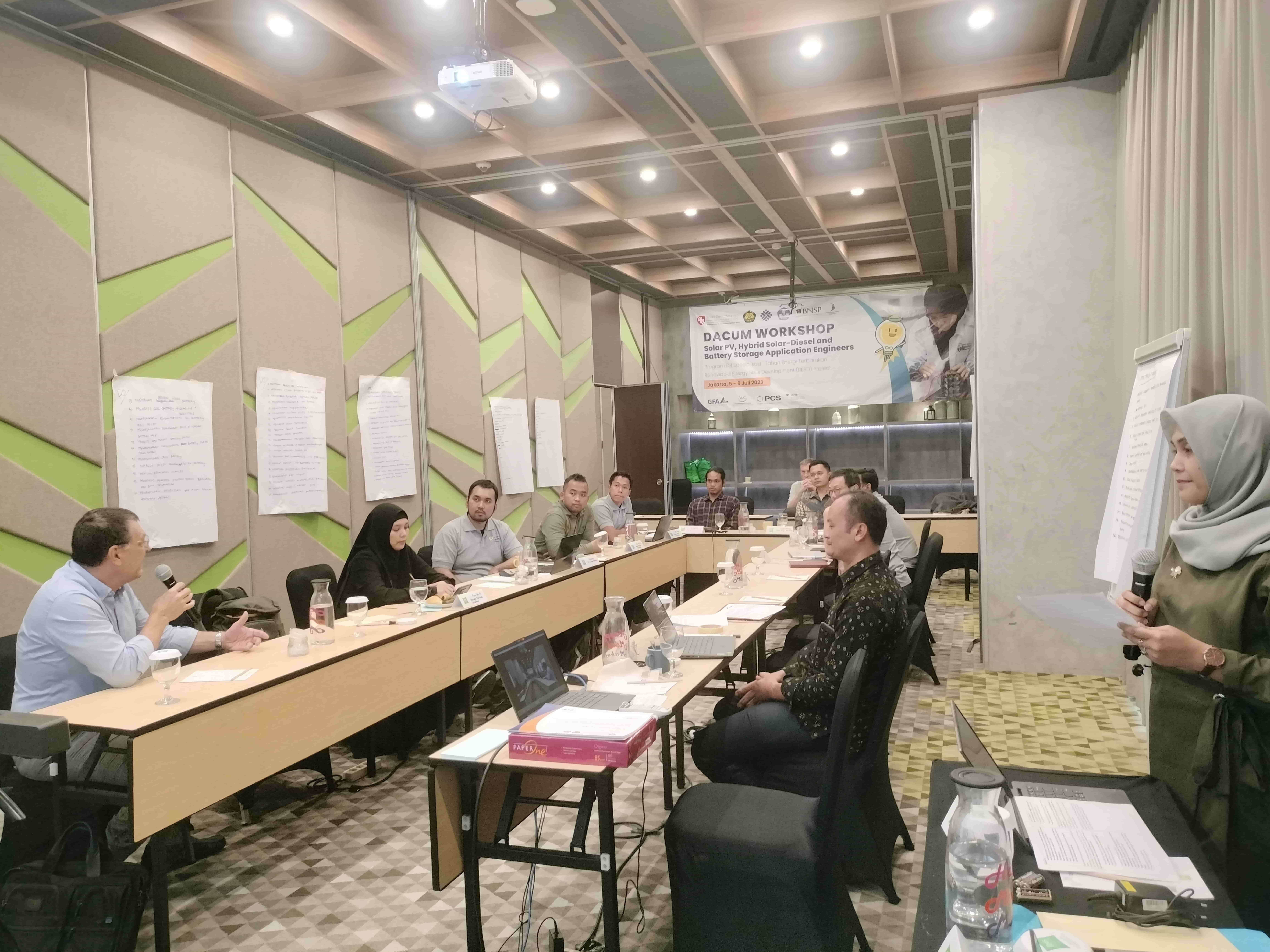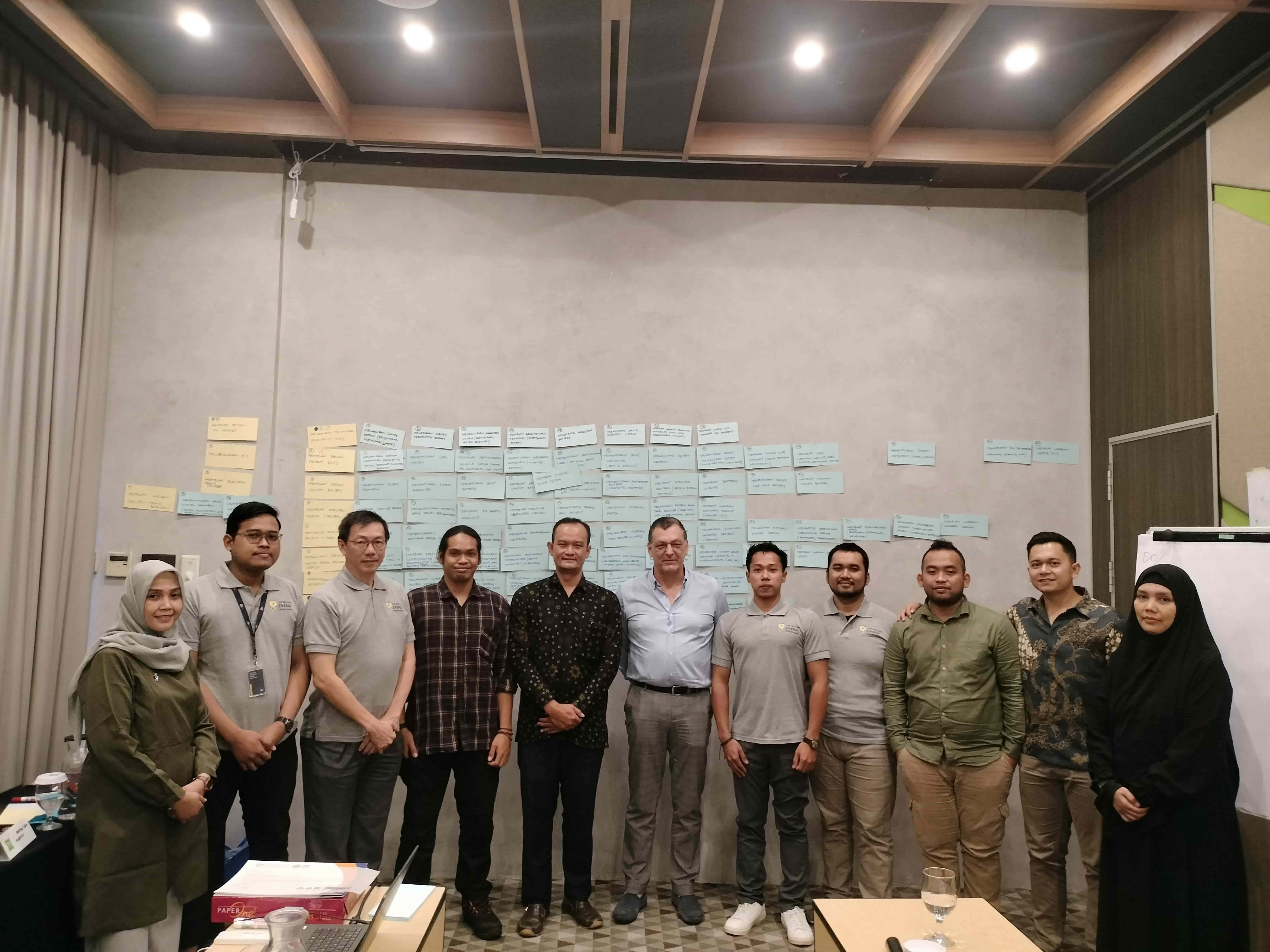NBRI Contributes to DACUM Workshop to Shape Diploma 4 Polytechnique Syllabus

Jakarta, 7 July 2023 - The Ibis Styles Simatupang Hotel in Jakarta recently hosted a significant DACUM workshop aimed at shaping the syllabus for Diploma 4 Polytechnique in renewable energy. The workshop, conducted under The Renewable Energy Skills Development Project (RESD), brought together experts from various industries, including the National Battery Research Institute (NBRI), to align the curriculum with the needs of the renewable energy industry. This collaborative effort, a part of the agreement between the Swiss Confederation (SECO-State Secretariat of Economic Affairs) and the Indonesian Government, represented by the Ministry of Energy and Mineral Resources, marks a crucial step towards narrowing the disparity gap and harmonizing industry requirements with educational institutions.
The two-day workshop, held on July 5-6, 2023, focused on gathering suggestions and insights from the renewable energy industry to shape the skill sets required for Solar PV engineers, Hybrid Solar-Diesel engineers, and Battery engineers. Utilizing the Developing A Curriculum (DACUM) method, these inputs will be transformed into a practical and comprehensive curriculum tailored specifically for Diploma 4 Polytechnique in renewable energy. The DACUM method, widely recognized for its effectiveness, ensures that the curriculum remains current and aligned with industry needs by actively involving industry experts in the curriculum development process.

Among the eight distinguished participants from the renewable energy and battery industry, NBRI was represented by Wahyu, a researcher and manager for the education and training department. With a minimum of two years of professional experience in their respective fields, the participants brought invaluable expertise and insights to the workshop discussions, contributing to the development of a curriculum that truly reflects industry requirements.

The significance of this workshop lies in the crucial link between industry and educational institutions. By aligning the syllabus with the needs of the renewable energy industry, the workshop aims to bridge the disparity gap and ensure that graduates possess the necessary skills and knowledge to meet industry demands. This harmonization is essential for the growth and development of the battery and renewable energy industry, as it enables educational institutions to produce highly skilled graduates who can readily contribute to the sector's advancements and drive sustainable energy transitions.

Furthermore, this workshop underscores the powerful message of collaboration and cooperation between industry and educational institutions. By actively involving industry experts in the curriculum development process, the workshop ensures that the syllabus remains up-to-date, practical, and relevant. This alignment not only benefits the students by equipping them with the skills required by the industry but also creates a mutually beneficial relationship where industry partners can directly influence the education system, fostering a strong and vibrant renewable energy workforce.
The DACUM workshop's impact extends beyond shaping the syllabus; it represents a significant step forward in cultivating a harmonious ecosystem between industry and education. By collaborating closely, both sectors can address the evolving demands of the battery and renewable energy industry, facilitate knowledge transfer, and pave the way for a sustainable and prosperous future (MWSM).
| Date | : | 09 July 2023 |
| Written by | : | NBRI |
| Share Article | ||